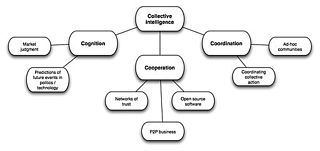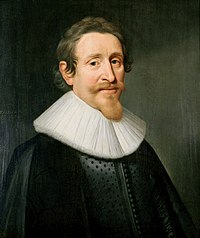
Jurisprudence is the philosophy and theory of law. It is concerned primarily with what the law is and what it ought to be. That includes questions of how persons and social relations are understood in legal terms, and of the values in and of law. Work that is counted as jurisprudence is mostly philosophical, but it includes work that also belongs to other disciplines, such as sociology, history, politics and economics.
Natural law is a system of law based on a close observation of human nature, and based on values intrinsic to human nature that can be deduced and applied independently of positive law. According to the theory of law called jusnaturalism, all people have inherent rights, conferred not by act of legislation but by "God, nature, or reason." Natural law theory can also refer to "theories of ethics, theories of politics, theories of civil law, and theories of religious morality."

Political philosophy or political theory is the philosophical study of government, addressing questions about the nature, scope, and legitimacy of public agents and institutions and the relationships between them. Its topics include politics, liberty, justice, property, rights, law, and the enforcement of laws by authority: what they are, if they are needed, what makes a government legitimate, what rights and freedoms it should protect, what form it should take, what the law is, and what duties citizens owe to a legitimate government, if any, and when it may be legitimately overthrown, if ever.

Philosophy of law is a branch of philosophy that examines the nature of law and law's relationship to other systems of norms, especially ethics and political philosophy. It asks questions like "What is law?", "What are the criteria for legal validity?", and "What is the relationship between law and morality?" Philosophy of law and jurisprudence are often used interchangeably, though jurisprudence sometimes encompasses forms of reasoning that fit into economics or sociology.

Reason is the capacity of applying logic consciously by drawing conclusions from new or existing information, with the aim of seeking the truth. It is closely associated with such characteristically human activities as philosophy, science, language, mathematics, and art, and is normally considered to be a distinguishing ability possessed by humans. Reason is sometimes referred to as rationality.
Moral absolutism is an ethical view that some actions are intrinsically right or wrong. Stealing, for instance, might be considered to be always immoral, even if done for the well-being of others, and even if it does in the end promote such a good. Moral absolutism stands in contrast to other categories of normative ethical theories such as consequentialism, which holds that the morality of an act depends on the consequences or the context of the act.

Hugo Grotius, also known as Huig de Groot and Hugo de Groot, was a Dutch humanist, diplomat, lawyer, theologian, jurist, statesman, poet and playwright. A teenage prodigy, he was born in Delft and studied at Leiden University. He was imprisoned in Loevestein Castle for his involvement in the intra-Calvinist disputes of the Dutch Republic, but escaped hidden in a chest of books that was transported to Gorinchem. Grotius wrote most of his major works in exile in France.

Divine command theory is a meta-ethical theory which proposes that an action's status as morally good is equivalent to whether it is commanded by God. The theory asserts that what is moral is determined by God's commands and that for a person to be moral he is to follow God's commands. Followers of both monotheistic and polytheistic religions in ancient and modern times have often accepted the importance of God's commands in establishing morality.
Some philosophers distinguish two types of rights, natural rights and legal rights.

The Euthyphro dilemma is found in Plato's dialogue Euthyphro, in which Socrates asks Euthyphro, "Is the pious loved by the gods because it is pious, or is it pious because it is loved by the gods?" (10a)

Francisco Suárez, was a Spanish Jesuit priest, philosopher and theologian, one of the leading figures of the School of Salamanca movement, and generally regarded among the greatest scholastics after Thomas Aquinas. His work is considered a turning point in the history of second scholasticism, marking the transition from its Renaissance to its Baroque phases. According to Christopher Shields and Daniel Schwartz, "figures as distinct from one another in place, time, and philosophical orientation as Leibniz, Grotius, Pufendorf, Schopenhauer and Heidegger, all found reason to cite him as a source of inspiration and influence."

Positive laws are human-made laws that oblige or specify an action. Positive law also describes the establishment of specific rights for an individual or group. Etymologically, the name derives from the verb to posit.

John Mitchell Finnis,, is an Australian legal philosopher and jurist specializing in jurisprudence and the philosophy of law. He is an original interpreter of Aristotle and Aquinas, and counts Germain Grisez as a major influence and collaborator. He has made contributions to the philosophy of knowledge, metaphysics, and moral philosophy.
Legal naturalism is a term coined by Olufemi Taiwo to describe a current in the social philosophy of Karl Marx which can be interpreted as one of natural law. Taiwo considered it the manifestation of Natural Law in a dialectical materialist context. The concept recognizes the existence of legal priorities or principles, which form an intrinsic part of an economic system.

Kantian ethics refers to a deontological ethical theory developed by German philosopher Immanuel Kant that is based on the notion that: "It is impossible to think of anything at all in the world, or indeed even beyond it, that could be considered good without limitation except a good will." The theory was developed in the context of Enlightenment rationalism. It states that an action can only be moral if (i) it is motivated by a sense of duty and (ii) its maxim may be rationally willed a universal, objective law.

Common sense is sound, practical judgment concerning everyday matters, or a basic ability to perceive, understand, and judge in a manner that is shared by nearly all people.

Natural Law and Natural Rights is a book by John Finnis first published by Oxford University Press, as part of the Clarendon Law Series. Finnis develops a philosophy of Law in the tradition of Aristotle and Thomas Aquinas – Natural Law. His presentation and defence of Natural Law can be explored from three perspectives. First, polemical, by contradistinction with other philosophies of Law. Second, through its particular methodology, based on practical reasoning. Third, through its substantive content in the form of basic human goods. This article offers a brief overview of each of these perspectives. In addition, his 2011 edition included an extensive Postcript, which is briefly discussed in the 4th Section. A brief appraisal of the book is included in the final section.
This is an index of articles in jurisprudence.
Ethics is the branch of philosophy that examines right and wrong moral behavior, moral concepts and moral language. Ethics or moral philosophy is a branch of philosophy that "involves systematizing, defending, and recommending concepts of right and wrong behavior". The field of ethics, along with aesthetics, concerns matters of value, and thus comprises the branch of philosophy called axiology.
Man-made law is law that is made by humans, usually considered in opposition to concepts like natural law or divine law.












